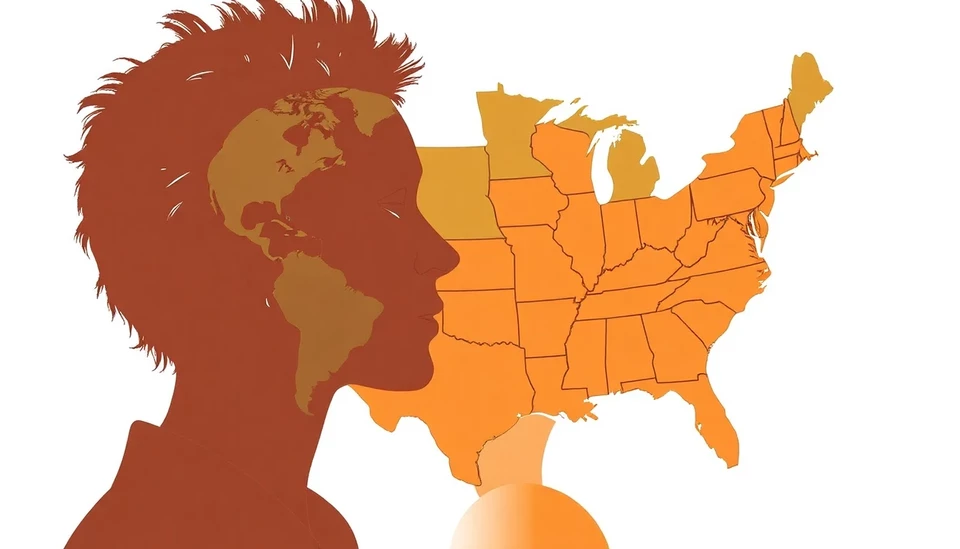
A recent survey has unveiled a concerning trend among young Americans regarding opinions on climate change, identifying a widening gender gap in views between male and female respondents. The findings indicate that young women are increasingly disillusioned with the effectiveness of climate initiatives, which stands in stark contrast to the more optimistic outlook expressed by young men.
Conducted by the prestigious research firm, the study surveyed individuals aged 18 to 29 across the United States. The outcomes suggest that while both genders are aware of climate-related issues, their perceptions and levels of engagement differ significantly. Approximately 62% of female respondents expressed skepticism about the ability of current policies to mitigate climate change successfully. In comparison, only about 45% of male respondents shared this doubt, showing a clear divergence in sentiment.
One of the primary factors contributing to this growing divide appears to be the varying emotional engagement with climate change issues. Researchers noted that young women are more likely to report feelings of anxiety and hopelessness regarding the climate crisis, which influences their overall outlook on environmental initiatives. Conversely, young men often manifest a more pragmatic approach, focusing on technological advancements and market-driven solutions as pathways to addressing climate challenges.
The study highlights not just the differences in opinion but also raises questions about the implications of this gender gap on future climate action. Experts fear that the growing disillusionment among young women could hinder mobilization efforts and reduce participation in climate advocacy initiatives. This disconnect poses a challenge for environmental organizations striving for inclusivity and broader community engagement.
Further analysis revealed demographic splits within the survey results. Young women of color reported the highest levels of frustration and skepticism, driven by factors such as limited access to resources and disproportionate impacts of climate change on marginalized communities. These findings call attention to the intersectionality of climate justice, emphasizing the urgent need to address systemic issues in climate action frameworks.
In response to the alarming findings, climate advocacy groups are re-evaluating their strategies to ensure diverse voices are heard and adequately represented in climate discussions. Tailoring outreach efforts to resonate with the experiences and concerns of young women, especially those from marginalized backgrounds, may be critical in bridging this widening divide.
Engaging young women in meaningful ways, such as through leadership roles in climate movements and creating safe spaces for sharing personal stories related to climate anxiety, could help cultivate a more unified front in the fight against climate change. As these organizations adapt, they must also recognize the importance of addressing the underlying issues that contribute to feelings of injustice and helplessness—ensuring clear channels for dialogue and empowerment.
The implications of this study are far-reaching, highlighting the urgent need for all stakeholders involved in climate policy and action to take note of these emerging disparities. Without addressing the differing views and emotional responses to climate change, future initiatives may struggle to gain traction among crucial demographics.
As the world grapples with the intensifying impacts of climate change, it is essential for advocates and policymakers to acknowledge and engage with the unique perspectives and sentiments held by young people—namely, the substantial differences found between genders. The path forward lies in finding common ground and empowering voices that have been historically underrepresented in environmental discussions.
In a time when collective action is paramount, fostering an inclusive environment that elevates the concerns of young women can be a game-changer in building the momentum needed for effective climate change solutions. By closing the gender gap in climate perspectives, a stronger, more united front can emerge, ultimately driving forward the urgency of climate action necessary to safeguard the planet's future.
#ClimateChange #GenderGap #YouthActivism #ClimateJustice #WomenInClimate
Author: Sophie Bennett




